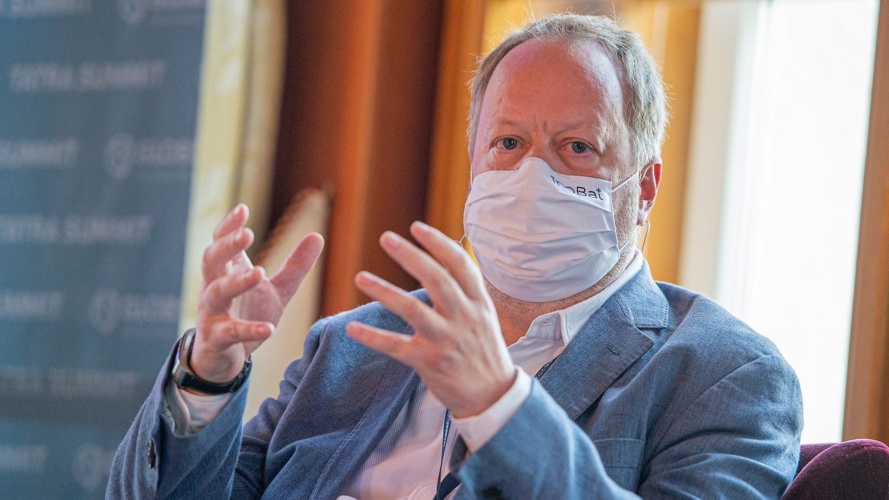Energy coverage from Saudi Arabia to Texas Journalists in 50+ countries follow the constant flow of money made and lost in oil & gas while tracking emerging trends and opportunities in the future of energy. Don’t miss our exclusive newsletter, Energy Source. Go to Source
Tag: Renault
Nissan warns of third year of losses as chip shortage hits turnround
Japanese carmaker said production likely to fall by 500,000 vehicles between April and September Go to Source
@Renault: Renault Group: Nissan contributes -€73 million for first quarter 2021 to Renault’s earnings000218
Nissan contributes -€73 million for first quarter 2021 to Renault’s earnings Boulogne-Billancourt, May 11th, 2021 Nissan released today its results for the fourth quarter of fiscal year 2020/2021 (April 1st, 2020 to March 31st, 2021). Nissan’s results, published in Japanese accounting standards, for the fourth quarter of fiscal year 2020/2021 (January 1st to March 31st,… Continue reading @Renault: Renault Group: Nissan contributes -€73 million for first quarter 2021 to Renault’s earnings000218
@Nissan: Nissan reports financial results for fiscal year 2020000336
2021/05/11 [embedded content] YOKOHAMA, Japan – Nissan Motor Co., Ltd. today announced financial results for the fourth quarter and the 12-month period ended March 31, 2021. In fiscal year 2020, Nissan has shown quarter by quarter steady recovery through strengthened financial base, improved selling expenses and fixed cost reduction further supported by renewed product lineup.… Continue reading @Nissan: Nissan reports financial results for fiscal year 2020000336
@niche: Sono Motors and MAN Truck & Bus Want to Jointly Analyze Applications of Solar Technology in Commercial Vehicles000864
Sono Motors is on a mission to enable a revolutionary mobility system, where every electric vehicle is solar, shared, and independent from fossil-fuels. Today, an experienced specialist team is developing a forward-looking electric car that is suitable for daily use, the Sion. Both the Sion’s integrated solar technology and innovative mobility services will enable users… Continue reading @niche: Sono Motors and MAN Truck & Bus Want to Jointly Analyze Applications of Solar Technology in Commercial Vehicles000864
Interview: Andy Palmer on life after Aston Martin – The Engineer
Following a rollercoaster six years in the top job at Aston Martin, Andy Palmer’s focus has shifted once again to electric vehicles. Andrew Wade reports. Andy Palmer is a busy man. Since departing as CEO of Aston Martin in May 2020, the engineer and automotive executive has turned once again to electric vehicles, taking up… Continue reading Interview: Andy Palmer on life after Aston Martin – The Engineer
GM build-shy strategy has tens of thousands of vehicles parked awaiting chip parts
In late January, retired General Motors employee Joseph Jones bought a 2021 GMC Sierra full-size pickup after having driven his 2004 Sierra for 17 years. Jones, 68, tracked the production of the new light-duty pickup in cherry red from his home in Franklin, Tennessee. He saw that it was built on Feb. 15 at GM’s Silao Assembly Plant in Mexico,… Continue reading GM build-shy strategy has tens of thousands of vehicles parked awaiting chip parts
@Renault: LADA increased sales in April 2021000216
In April 2021, 37,931 LADA passenger cars and light commercial vehicles were sold in Russia, which is 4 times more than the result of April 2020 and 17.4% higher than the sales of April 2019. To remind, sales in the entire Russian market in April 2020 showed the lowest result in the modern history due… Continue reading @Renault: LADA increased sales in April 2021000216
Renault: new logo, electrified range and the electric Megane arrives
4 ‘of reading Renault has unveiled the innovations for the future, presented within the Renaulution strategic plan. It was Luca de Meo himself, president of the Alliance, who showed how Renault will change from the new logo to the new electric Megane. The “Nouvelle Vague” intends to transform Renault into a manufacturer of technology, services… Continue reading Renault: new logo, electrified range and the electric Megane arrives
Indonesia and Thailand bet big on vehicle electrification
There are growing indications that the ASEAN could be seeing growth in electric mobility in the near future. According to an LMC Automotive report, there have recent developments in vehicle electrification in South East Asia, especially in the region’s two key markets of Indonesia and Thailand. Indonesia, which has one of the world’s richest reserves… Continue reading Indonesia and Thailand bet big on vehicle electrification
